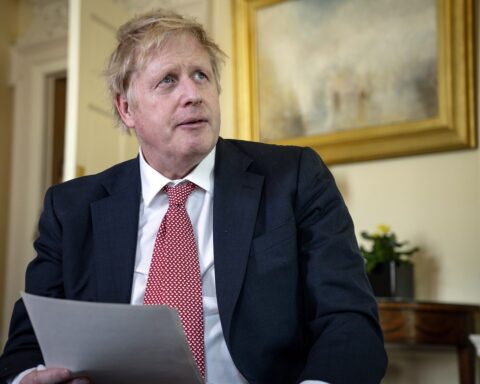Officials in Gibraltar are making daily patrols of the territory’s Barbary macaque population amid fears that the iconic monkeys could be vulnerable to the coronavirus.
The British overseas territory has been relatively spared by the virus, documenting about 1,000 confirmed cases and six deaths. But as governments around the world wrestle with how to keep the coronavirus at bay, authorities in the Rock are grappling with an additional worry: how to shield Europe’s only wild monkey population from the virus.
“We knew it from day one,” said Mark Pizarro, the veterinary officer responsible for the care of Gibraltar’s macaque population. “It’s logical. You have a virus that lives in primates like us, then it’s going to always be a risk to other primates.”
Earlier this year the government sought to crack down on interactions with the macaques, which rank among the territory’s top tourist attractions. A new law, passed in August, made it an offence to touch or interfere with the monkeys, adding to existing legislation that sets out hefty fines for feeding them.
“Macaques are prone to succumb to human disease,” the government noted in a statement announcing the new law. “This has been seen in the past when our macaques have for example contracted hepatitis A.”
Believed to have been living on the Rock since the Moorish occupation of the Iberian peninsula, local folklore has it that as long as the macaques roam Gibraltar, the territory will remain under British rule. Officials have at times gone to remarkable lengths to protect the population; during the second world war, Winston Churchill gave an order to bolster their dwindling numbers with macaques from north Africa.
Today the population stands at about 220 macaques. Coronavirus tests carried out in recent months on four – all of which died of other causes, such as road traffic accidents – came back negative, reinforcing the government’s view that the virus poses only a mild risk to the macaques.
But concerns grew again in November after Denmark announced plans to cull more than 15 million mink over fears that new mutations discovered in the animals could undermine the effectiveness of Covid-19 vaccines.
The Gibraltar government described the Danish announcement as “particularly worrying” given that it suggested that the macaques, should they contract the virus, could become a source of infection for humans and potentially pass on mutations that could jeopardise vaccination efforts.
Pizarro said his team of six had been monitoring the macaques on a daily basis. So far they have seen little sign of infection.
What their patrols have made clear, however, is that the pandemic – and specifically the resulting plunge in tourism – has been a boon to the macaques. “Their behaviour in a lot of cases has reverted to normal. They interact with themselves, they forage naturally, they spend more time grooming each other, there’s less aggression between the macaques,” said Pizarro. “So there is a lot of positive spin from decreased human contact.”






